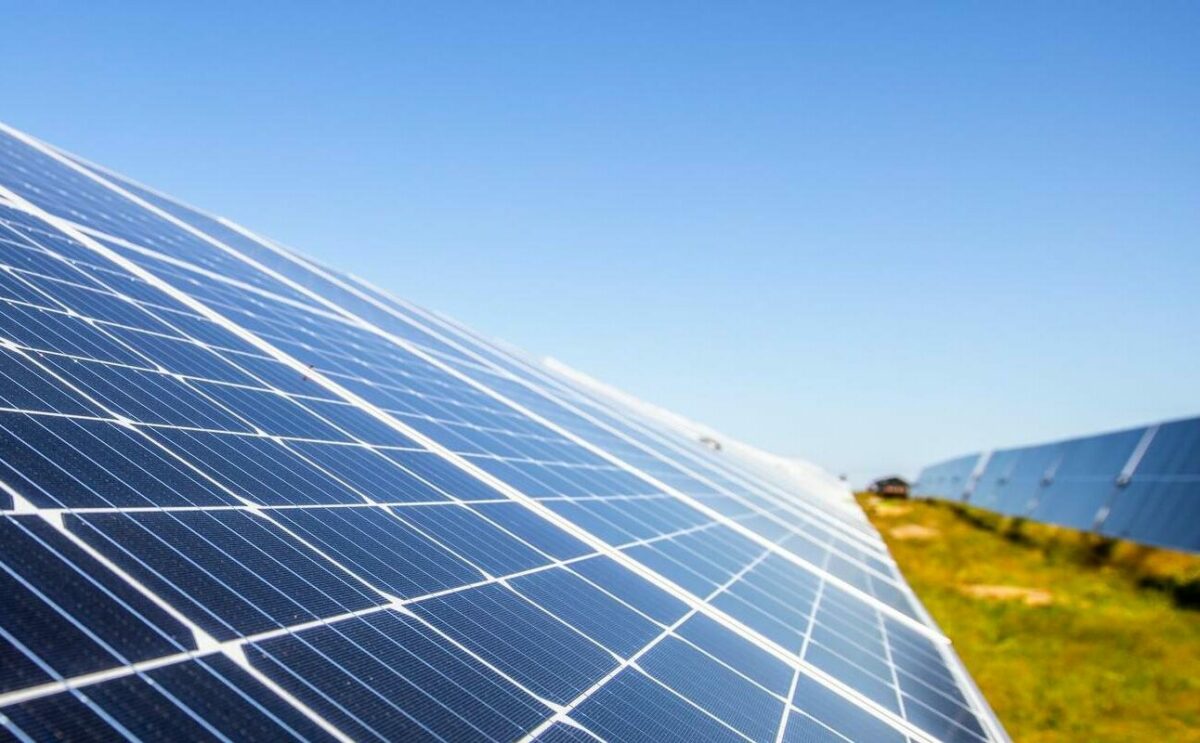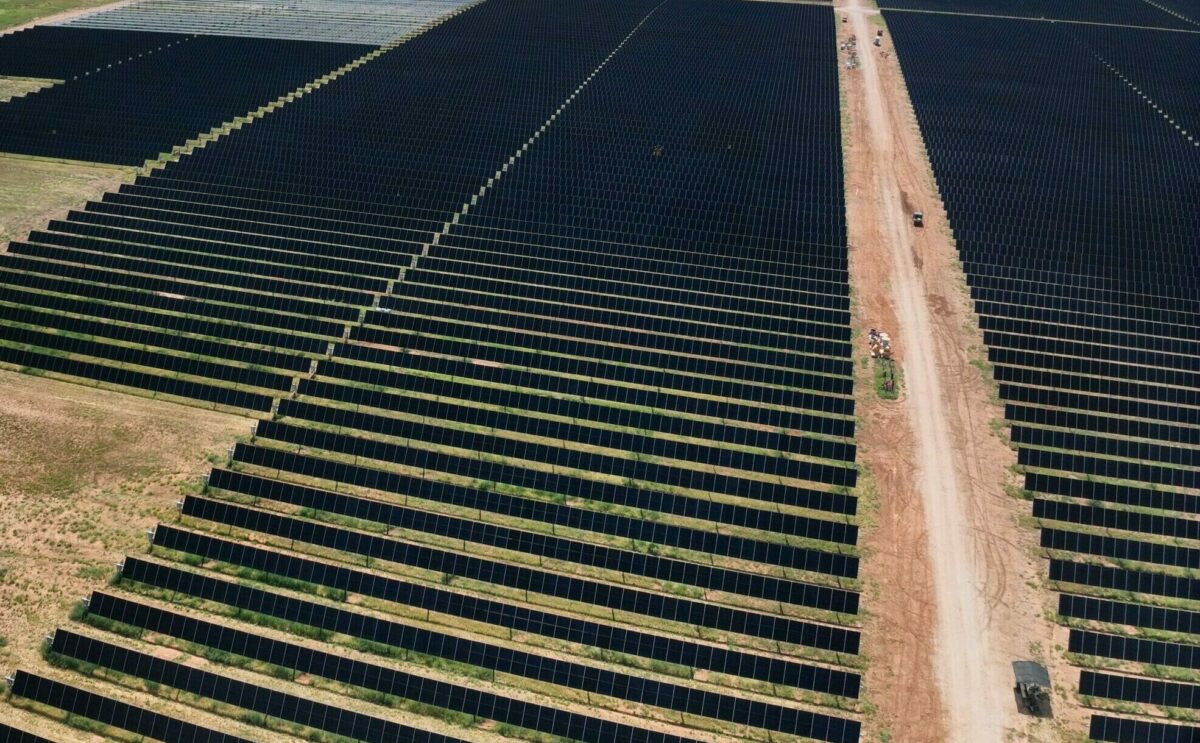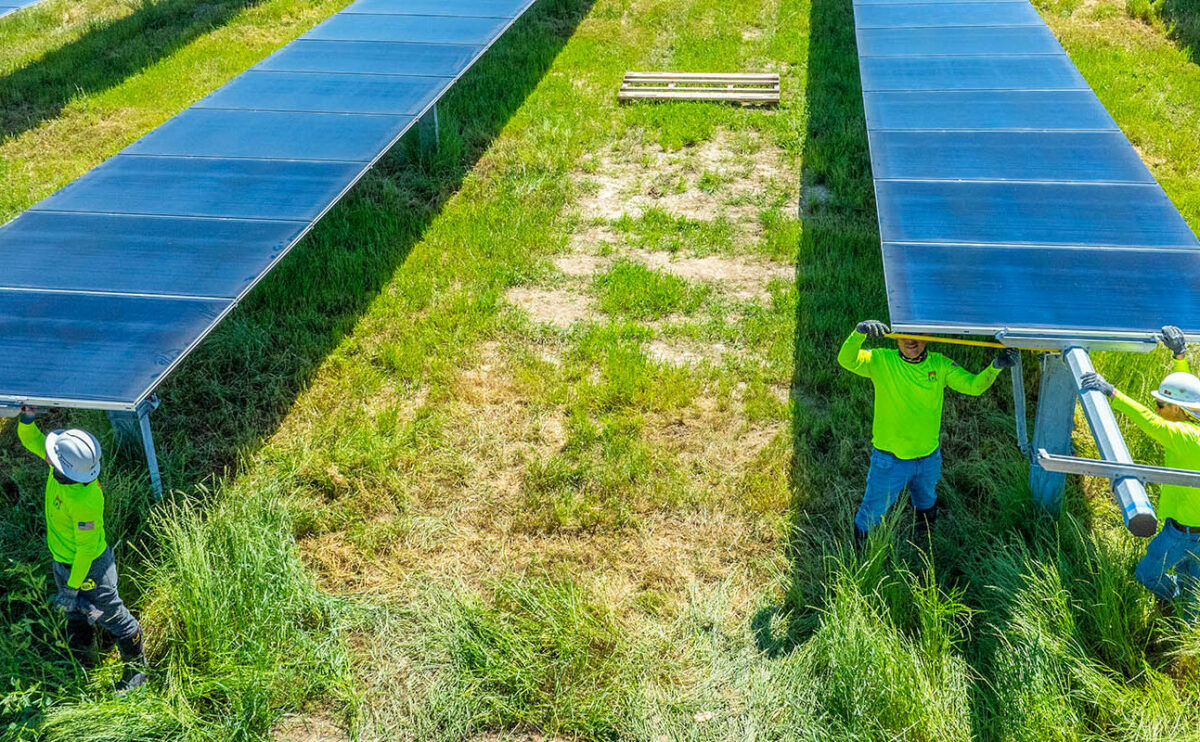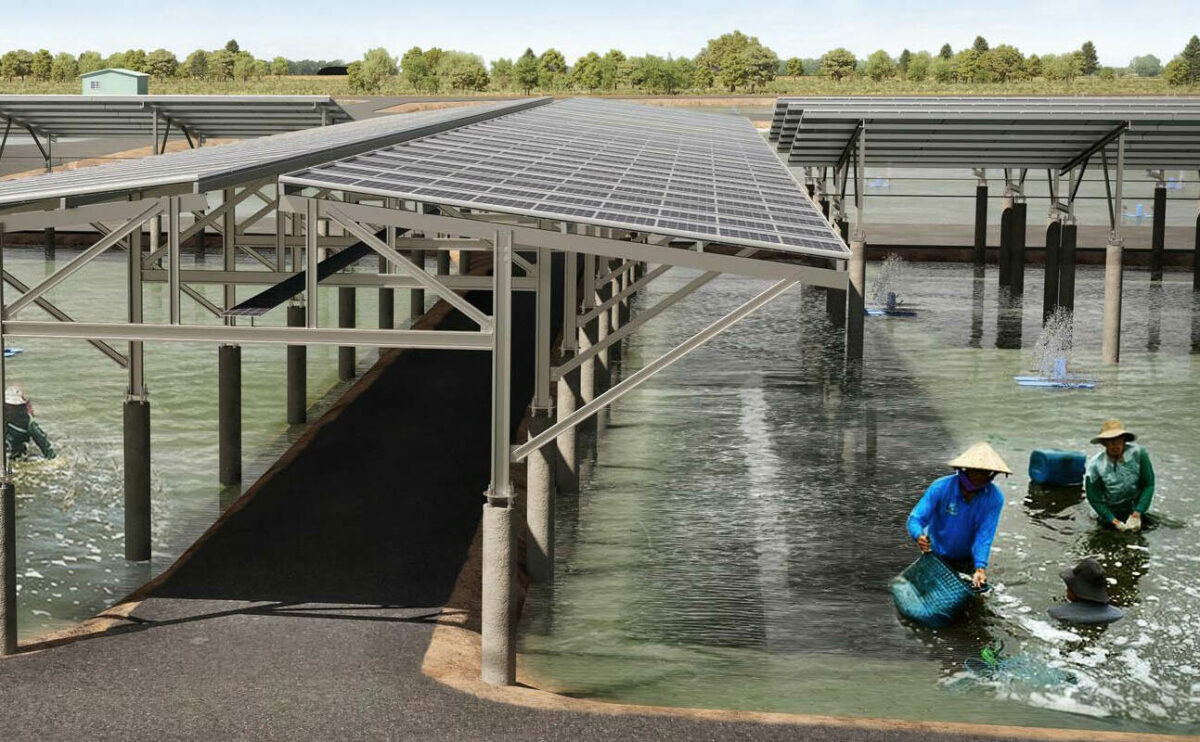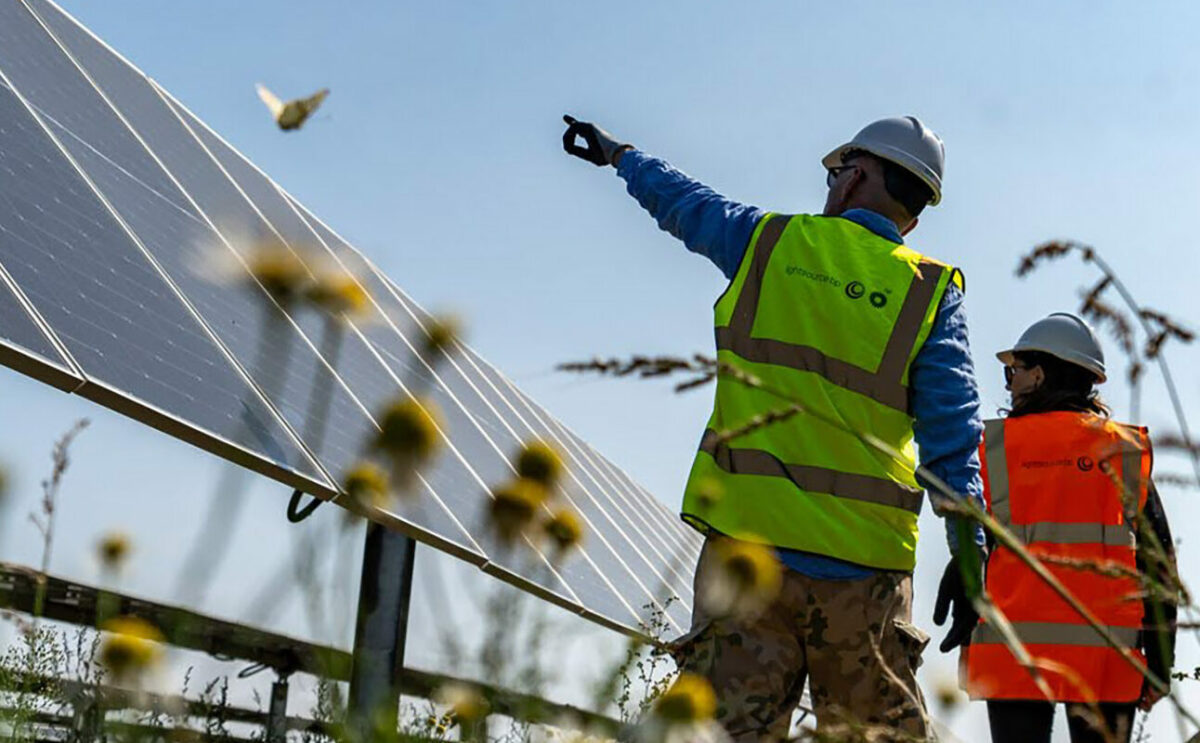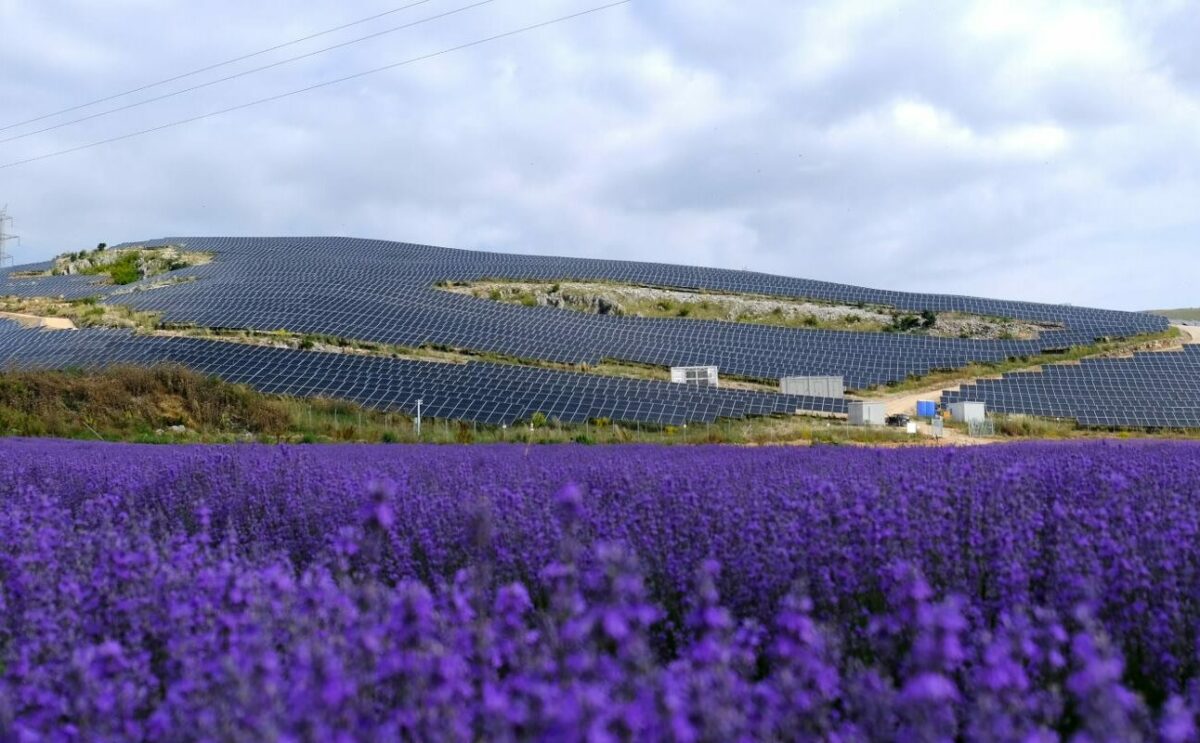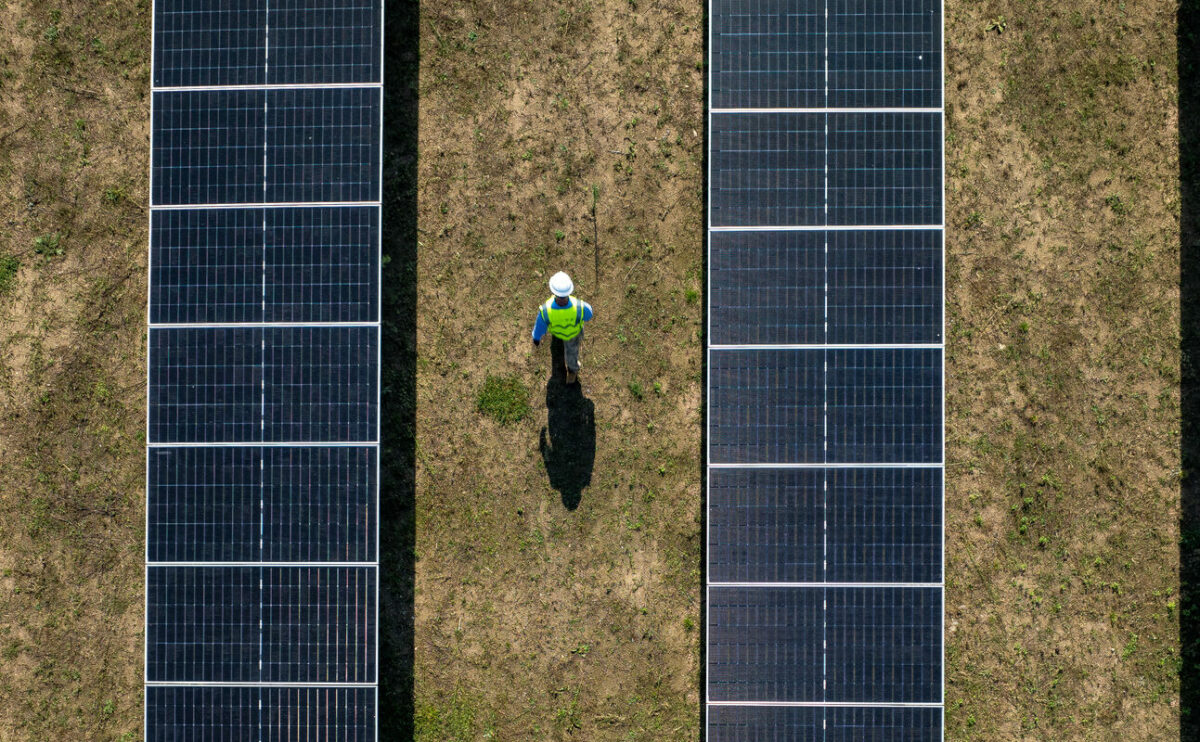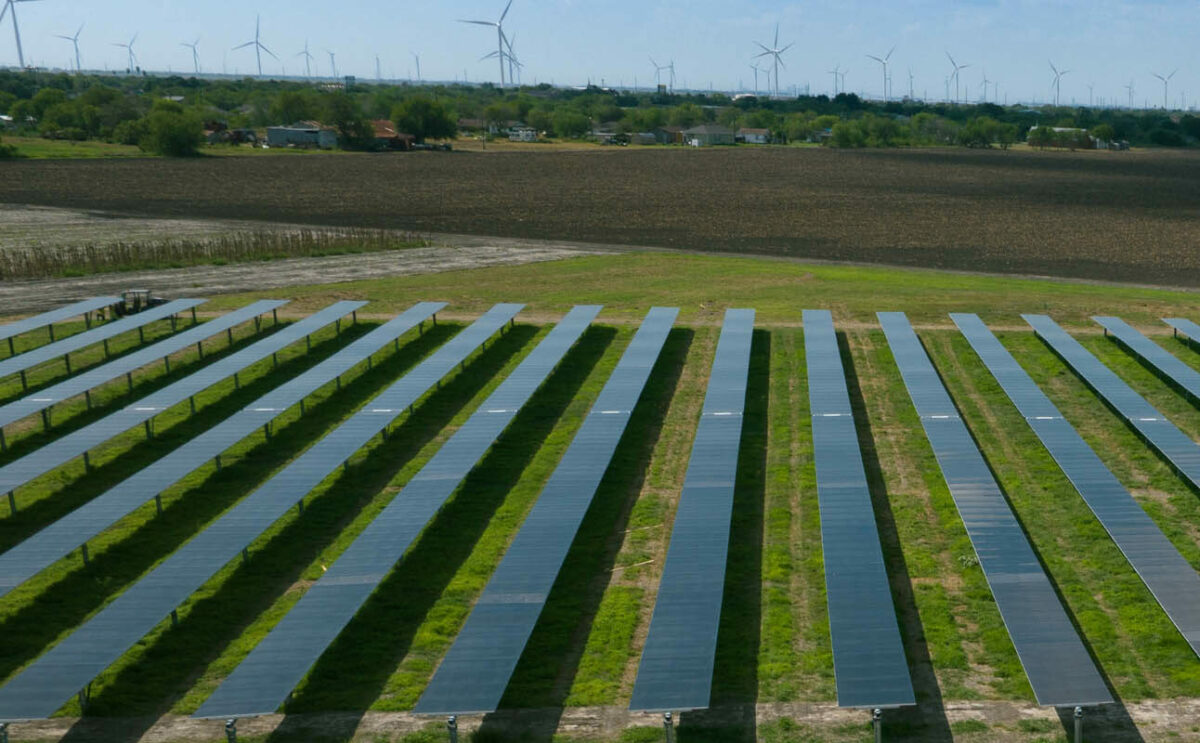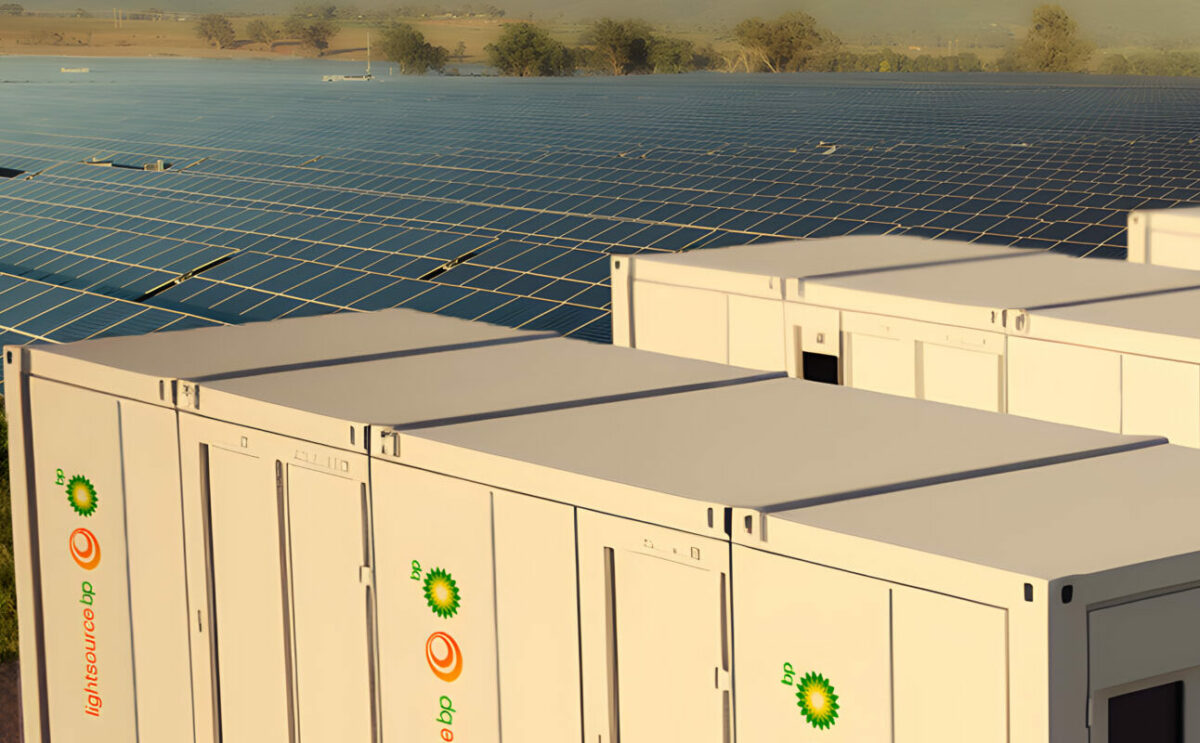NFU Launches Best Practice Guidance For Solar Farms
A new guidance by the NFU showing best practices for solar farms
New guidance compiled by the NFU and published by the BRE National Solar Centre shows how solar farms can be combined with continued agricultural land use for small livestock such as sheep, chickens or geese. Describing recent experience and best practice for the integration of ground-mounted solar PV with conventional agriculture, the guide complements previous publications on planning and biodiversity management for solar farms.
The NFU led a working group to develop this guidance with solar farm developers and the Solar Trade Association under the auspices of the government’s Solar PV Strategy. The agricultural sector and solar industry together have taken the opportunity to lead the debate and secure greater public confidence in multi-purpose use of land.
According to NFU Vice President Guy Smith, “It is clear that renewable energy can support profitable farming, underpinning traditional agricultural production with additional returns that make businesses more resilient. This guidance document shows how solar farms can indeed be multifunctional, simultaneously meeting food and energy needs as well as enhancing biodiversity. Only a negligible land take is required to make a major contribution to Britain’s clean energy needs, so the future looks bright for solar grazed lamb and free-range solar chicken.”
Devon sheep farmer Gilbert Churchill, who diversified into solar power last year, hosted the press launch of the ‘Agricultural Good Practice Guidance for Solar Farms’. “Solar is environmentally friendly and gives me a secure regular income”, he added. “It’s a lifeline…that will safeguard the farm’s survival for the future.”
It has been proposed that the presence of livestock, where solar farm agreements maintain the land ‘at the disposal’ of the farmer, could allow the land to eligible for the Basic Payment Scheme from 2015. However Defra is still reviewing the BPS rules and has not yet made a final decision on eligibility of grazed solar farms.
But with a new generation of farms evidently producing both food and energy from the same land, perhaps the ‘solar versus food’ debate is now over?
Watch the video featuring Dr. Jonathan Scurlock:
If you would like to learn more about the benefits of solar farms and how they can actually improve biodiversity, please contact us via email or call us on 0333 200 0755.
News
15 Jan, 2026
Lightsource bp’s hail mitigation solution showcased in the World Economic Forum’s Innovation Playbook for Future Power Systems
The World Economic Forum (WEF) launched the Innovation Playbook, showcasing practical, scalable solutions driving the transformation of global power systems.
13 Jan, 2026
USA: Lightsource bp and Toyota enter into a power contract in Texas
Lightsource bp and Toyota Motor North America have finalized a virtual power purchase agreement for energy from the 231MW Jones City 2 solar farm in Texas.
18 Dec, 2025
Energy in Focus – In-house cross-functional teams building quality projects
Ric Hatton, Director of Delivery for EMEA, has spent most of his career in power generation industry, with a keen interest in managing utility-scale renewable projects.
04 Dec, 2025
Energy in Focus – How local partnership and community engagement sparks project success
At Lightsource bp, we deliver renewable energy and storage solutions while seeking to enhance ecosystems, local economies and progressing a sustainable supply chain.
20 Nov, 2025
Energy in Focus – Building a culture of safety at Lightsource bp
In our first Energy in Focus episode, Will Manchas, Head of HSE for USA and EMEA shares how our Golden Rules help us protect ourselves and others.
22 Oct, 2025
Lightsource bp supports Apple’s renewable energy projects progress across Europe
Lightsource bp is proud to partner with Apple Inc. in support of its goal to achieve carbon neutrality across its entire footprint by the end of this decade.
21 Oct, 2025
Environmental safety in action: living our Golden Rules
At Lightsource bp, our Golden Rules are daily practices that protect our people and ensure business continuity, especially in the face of climate extremes.
17 Oct, 2025
USA: Lightsource bp and Pinnacle Financial Partners announce $97.9M tax equity deal for Peacock Solar
Lightsource bp and Pinnacle Financial Partners today announced the closing of a $97.9 million tax equity deal to finance the 187 MW Peacock Solar in San Patricio County, TX.
18 Sep, 2025
Australia: Lightsource bp advances its first solar and storage hybrid project
Lightsource bp has commenced delivery on one of the first large-scale DC-coupled solar-battery hybrid projects in Australia.
15 Aug, 2025
Resetting and recharging – what we did for Wellbeing Day
As part of our promotion of a healthy work-life balance, this year we once again rewarded our team members with an extra day of annual leave to focus on their wellbeing.

